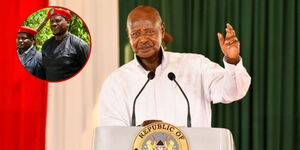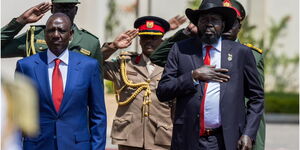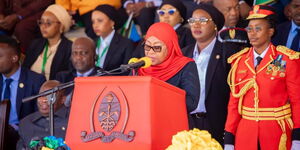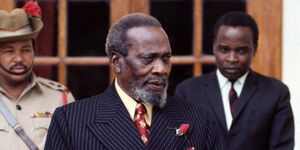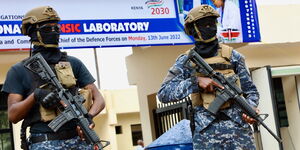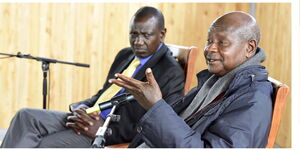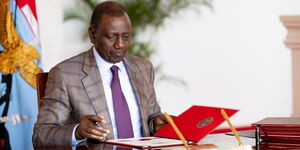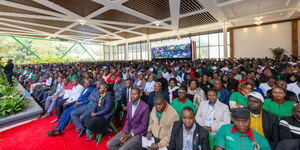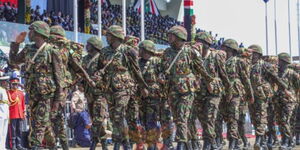The United States has warned that it might cut its funding for the Kenyan-led Multinational Security Support (MSS) Mission in Haiti if the United Nations Security Council rejects proposals for the mission’s restructuring and expansion.
As world leaders gather for the United Nations General Assembly (UNGA), the U.S. has proposed major reforms to the mission, including increased funding and direct support from the UN.
While speaking to Reuters on Wednesday, September 24, U.S. Charge d'Affaires in Haiti Henry Wooster expressed these concerns at a time when the U.S. funding for the mission is set to expire this December.
"The US provision of support for the MSS and what we have been providing will expire at the end of December," Wooster said, when asked if Washington will continue to support if the plan is rejected.
Reforms to the mission include renaming the mission to the Gang Suppression Force, increasing the troop numbers to 5,500, broadening the mandate, and establishing a UN support force for Haiti.
However, this proposal might not be adopted if the UN Security Council, composed of the US, China, Russia, France, and the United Kingdom, which are the permanent members with veto powers, votes to reject it. Other members include Algeria, Denmark, Sierra Leone, Slovenia, Greece, Guyana, Pakistan, Panama, Korea, and Somalia.
The Kenya-led MSS deployed in Haiti in June last year but has struggled to make progress in curbing violent armed gangs, some classified as terrorist organisations by Washington, in and beyond Port-au-Prince.
Built through voluntary contributions from member states, the mission has faced shortages of funds, troops, and equipment such as armoured vehicles. About 1,000 troops have been deployed, short of a target of approximately 2,500.
As the mission’s mandate approaches expiration on October 2, President William Ruto recently criticised global leaders for failing to provide sufficient support.
Speaking at the High-Level Meeting on Haiti in New York on Monday, Ruto warned that Kenya would only send additional troops if the mandate was clear and supported by reliable resources under the international community and the United Nations Security Council.
“If we are sending an additional team, the mandate must be clear. We must also have a predictable resource package. It cannot be what Kenya has been through, which is a game of guesswork, if we are serious about solving the matter of Haiti,” he said.
The President disclosed that Kenya’s plan to set up 12 new forward operating bases was delayed due to logistical setbacks, allowing gangs to reclaim some previously controlled areas.
UN data indicated that a trust fund for the original mission had received $113 million (Ksh14.6 billion), mostly from Canada, with the US second at $15 million (Ksh1.9 billion). It was estimated that operating costs would run into hundreds of millions annually.

